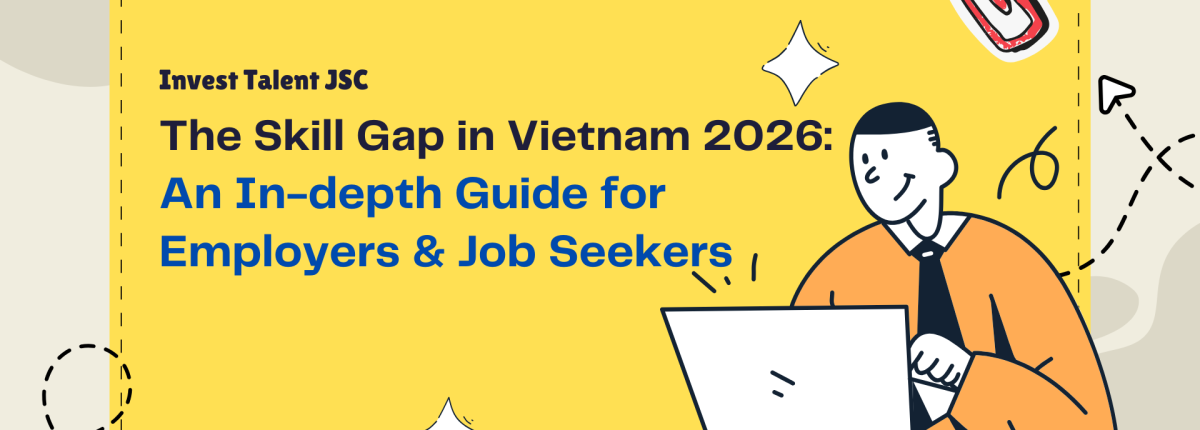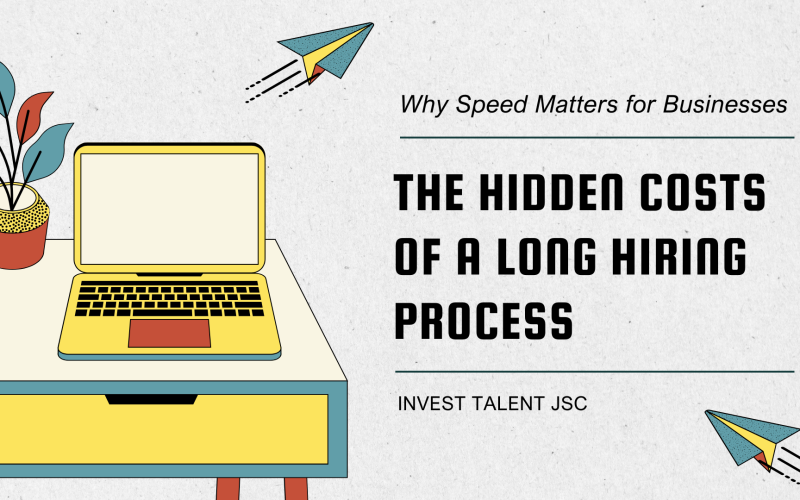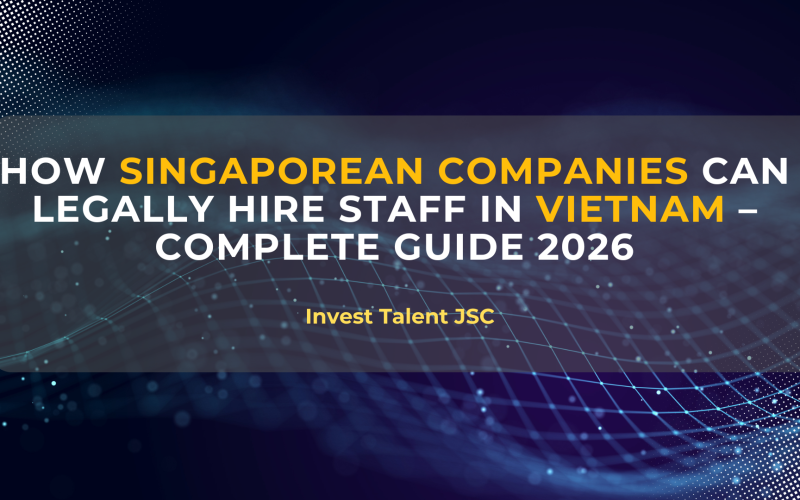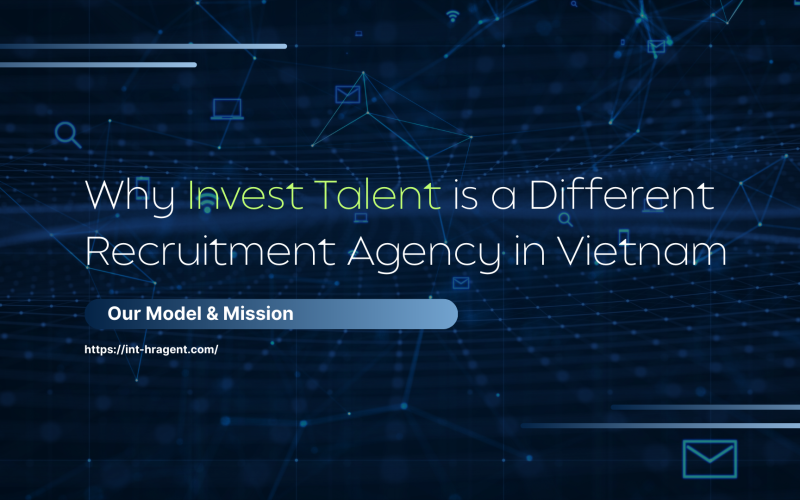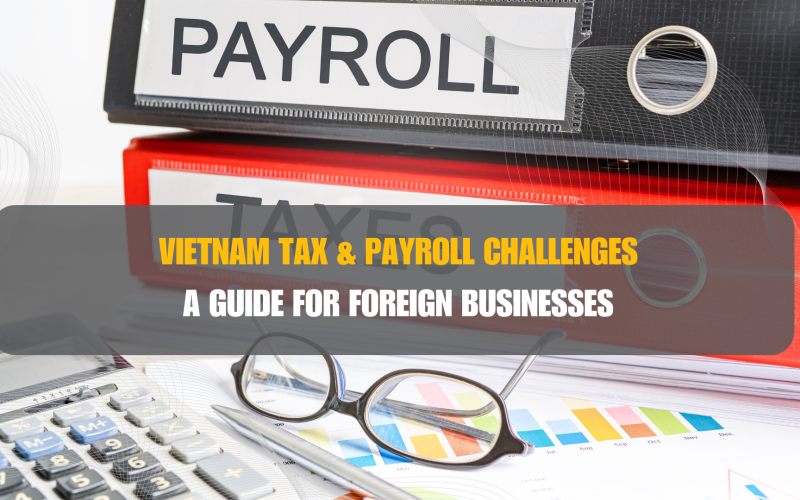The Skill Gap in Vietnam 2026: An In-depth Guide for Employers & Job Seekers
The Skill Gap in Vietnam 2026: An In-depth Guide for Employers & Job Seekers
In the dynamic landscape of Vietnam's economy, the term "skill gap" is becoming a critical topic for businesses and talent alike. A skill gap is the mismatch between the skills employers need and the skills the available workforce possesses. By 2026, this gap is predicted to widen significantly, especially in high-tech and specialized sectors, driven by rapid digital transformation and the shift towards a knowledge-based economy. For employers, this means a fierce competition for top talent. For job seekers, it presents a clear roadmap for career growth.
Key Sectors Facing a Skill Gap in Vietnam
Vietnam's economy is undergoing a powerful transformation, moving from a labor-intensive model to one focused on higher-value industries. This shift is creating a pressing need for a more skilled workforce. Here are the key sectors where the Vietnam skill gap 2026 is most acute:
- Technology and IT: The digital economy is booming, but there's a severe shortage of skilled professionals in AI, cloud computing, cybersecurity, data analysis, and advanced software development. As global companies like Google and NVIDIA invest more in the country, the demand for this talent is escalating, creating a major gap between available jobs and qualified candidates.
- High-Tech Manufacturing: While Vietnam remains a key manufacturing hub, the industry is increasingly adopting automation and advanced technologies. This means a reduced demand for low-skilled laborers and a rising need for engineers, technicians, and specialized workers who can operate and maintain complex machinery. The gap is particularly noticeable in high-tech manufacturing, a major focus for FDI in Vietnam.
- Hospitality and Tourism: Following a strong post-pandemic recovery, the F&B and tourism industries are experiencing explosive growth. However, they are struggling to find qualified chefs, bartenders, and management-level professionals. The high turnover rate and a lack of formal, structured training programs are major contributing factors to this shortage.
- FinTech and Banking: As the financial sector modernizes, there's a growing need for professionals with skills in FinTech, data security, and financial analysis. The integration of new technologies requires a workforce that can adapt quickly to digital-first operations, creating a significant talent shortage in this space.
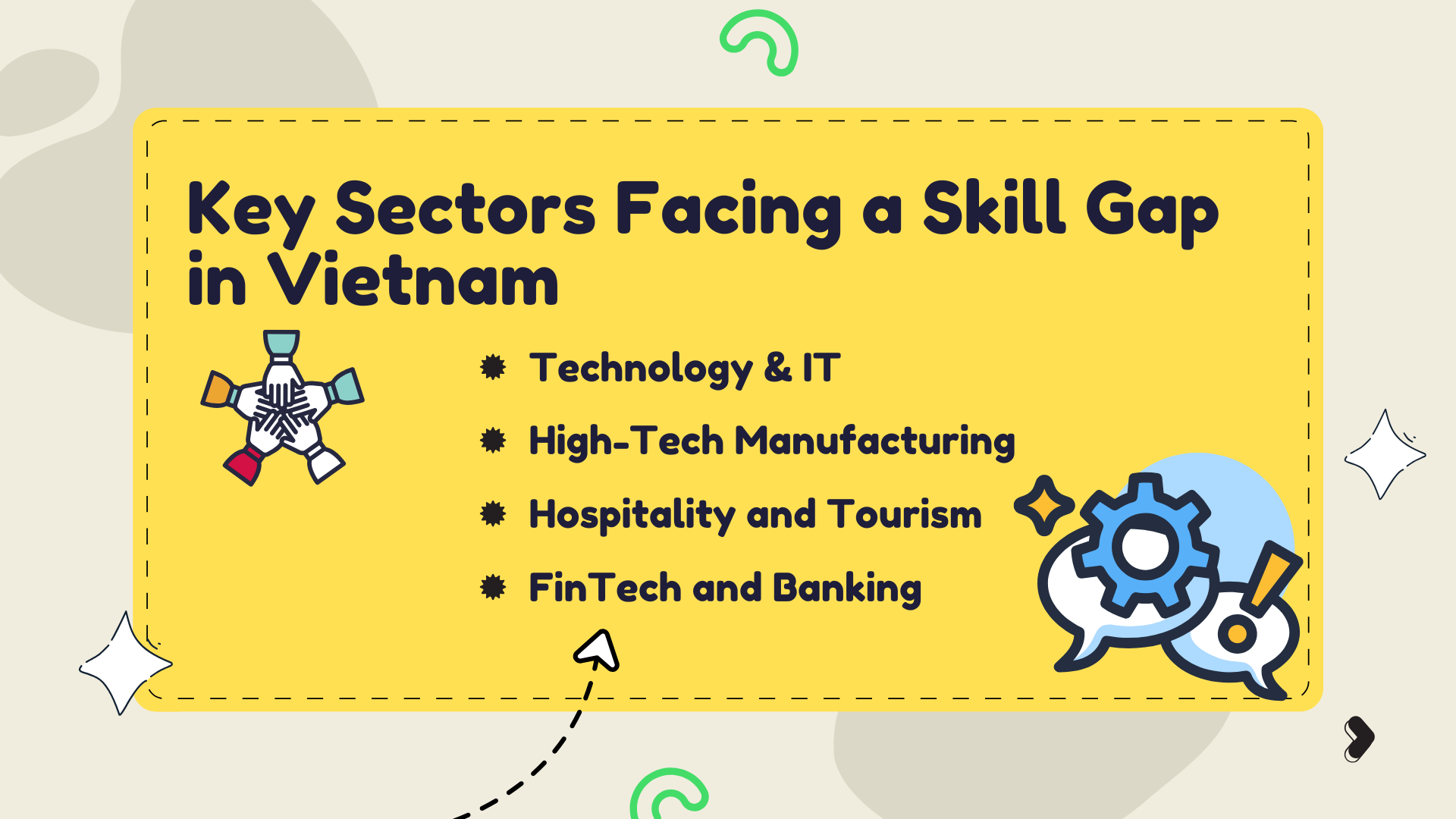
Understanding the Drivers of Vietnam's Skill Gap
Several factors are fueling this crucial challenge:
- The Education System: While Vietnam has a high literacy rate and strong foundational skills, the education system often struggles to keep up with the rapid pace of technological change. The focus on theoretical knowledge can leave graduates unprepared for the practical, hands-on skills required in the modern workplace.
- Soft Skills Deficit: Beyond technical expertise, employers consistently report a shortage of crucial soft skills. These include critical thinking, collaboration, communication, and adaptability. In a globalized and dynamic work environment, these "power skills" are becoming just as important as technical expertise.
- Weak Industry-Academia Linkages: The collaboration between vocational schools, universities, and businesses remains weak. This leads to a significant mismatch between the skills taught in academic programs and the skills demanded by the market.
How to Bridge the Gap: Solutions for Companies & Professionals
Closing the skill gap requires a concerted effort from all stakeholders—the government, educational institutions, and businesses. As a recruitment agency in Vietnam, Invest Talent JSC is committed to helping both sides of this equation.
Solutions for Companies (Employers)
- Invest in Continuous Training: Businesses must take a proactive approach to workforce development. This includes offering upskilling and reskilling programs for current employees to align their abilities with evolving business needs. This can also serve as a powerful employee retention strategy.
- Strengthen Academic-Industry Partnerships: By collaborating with universities and vocational schools, you can help shape curricula and offer internships or apprenticeships. This ensures new graduates enter the workforce with market-ready skills, creating a direct pipeline of qualified talent.
- Rethink Recruitment Strategies: Look beyond traditional qualifications. A skilled recruitment agency can help you identify candidates based on their potential, adaptability, and willingness to learn. At Invest Talent JSC, we help our clients find talent that is not only qualified today but also has the potential to grow with your company tomorrow.
Solutions for Professionals (Job Seekers)
- Embrace Lifelong Learning: The modern labor market demands continuous learning. Professionals must be proactive in acquiring new skills, especially in high-demand areas like AI and data analytics. Look for online courses, professional certifications, and workshops.
- Develop In-demand Soft Skills: Actively work on improving your communication, teamwork, and problem-solving abilities. These skills are highly valued by employers and can set you apart in a competitive job market.
- Partner with a Recruitment Agency: A local expert like Invest Talent JSC understands the nuances of the Vietnamese job market. We can provide guidance on which skills are most valuable, help you identify career paths with high growth potential, and connect you with leading companies looking for a skilled workforce.
By addressing the skill gap head-on, Vietnam can secure its position as a regional economic powerhouse and ensure its workforce is prepared for the challenges and opportunities of 2026 and beyond.

